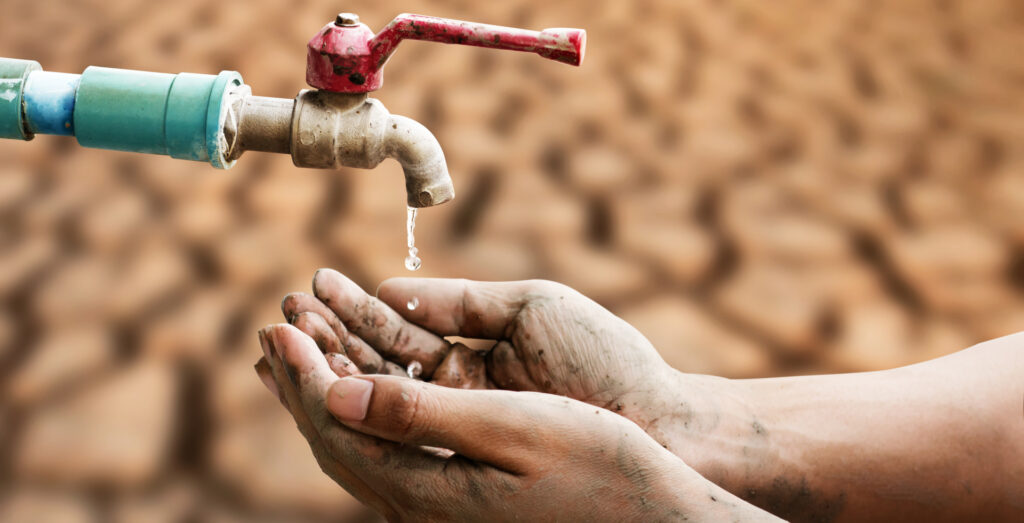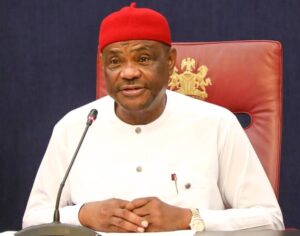Water, the most crucial resource of human survival should never be commoditized for profit, warns the Corporate Accountability and Public Participation Africa (CAPPA) on the 2024 World Water Day.
The warning came on the heels of unrelenting moves by subnational governments in Nigeria, and across African states to privatize this essential resource.
In December 2023, the Lagos government fired over 450 workers from its water corporation in what appears to be a move towards water privatization.
The Enugu State government towed the same line in January 2024 when it sacked 20 workers of its water corporation for not meeting revenue target.
These developments showed that policymakers have not abandoned the plan to privatize water services despite a strong reprimand from the UN in 2020 which noted that the move would have negative impacts on human rights of lower-income Nigerians.
CAPPA’s executive director, Akinbode Oluwafemi, joined other activists to warn against the danger of water privatization at a press conference held in Lagos under the auspices of the Our Water Our Rights Africa Coalition (OWORAC).
Oluwafemi said public-private partnerships offer no real solutions to water challenges.
He urged federal and state governments to increase budgetary allocation to revitalize the performance of the water sector by refurbishing dilapidated infrastructure, upgrading existing waterworks and building new facilities to ensure widespread access to clean and safe drinking water.
He said: “In Nigeria alone, a staggering 113 million people suffer from painful hardship and crippling deprivation of water.
“This saddening neglect is not due to a scarcity of resources but rather a consequence of the profit-driven logic adopted by state authorities in managing water supply and amenities.
“The relentless pursuit of commodifying public resources, at the expense of community welfare, has led to the deterioration of vital public utilities and social services.
“While this plight is widespread across the country, the situation in Lagos State is particularly alarming for us.
“Despite the state’s reputation as a lodestar and mega-city, over 8 million of its residents equivalent to roughly 60 percent of its population- grapple with limited access to potable water.
“In 2023, CAPPA drew attention to the sorry state of several water works in the state, which remain derelict to date.
“One year later, Lagosians still lack running water in their homes, with water works remaining padlocked, while citizens are forced to pay exorbitantly to non-state actors for basic water.
“This issue is further worsened by the state’s frequent romanticisation of profit-driven partnership models as purported solutions, despite global evidence documenting the failures of privatizing water supply and infrastructure.
“We wish to re-emphasize today that only democratic ownership and public control of water services can remedy the deep-rooted injustice of water inaccessibility.
“For emphasis, we categorically reject any plans by the Lagos State aided by the influence of international financial institutions and development agencies with a pro-privatization stance to outsource its traditional responsibility of providing water to its citizens to business owners.”
On her part, the representative of OWORAC, Comrade Ahmed Gbemisola, said all forms of water privatisation and corporate control of water services must be rejected as they pose fundamental threats to the shared goal of universal access to water.
She said: “OWORAC seizes this occasion of World Water Day to reiterate its demands that African governments and peoples reject water privatisation and the so-called ‘public-private partnerships as false solutions to the very real challenges we face.
“Governments should channel public funds into public service, not incentives that attract privateers. And, most importantly, they must ensure meaningful public participation from communities, civil society, and workers in the decisions that impact the people’s fundamental human right to water.”
Other speakers at the event include Sefa Ikpa, Programme Officer, Water Campaign at CAPPA, Zikora Ibeh, Policy and Research Officer at CAPPA, Sandra Ndang, Advocacy Officer at African Centre for Advocacy in Cameroon, and Oumar Ba, Syndicat Autonme des Travailleurs des Eaux du Senegal.










More Stories
Abuja warns auto dealer for mocking civil servants’ inability to afford luxury cars
Sowore joins judiciary workers in locking out judges, others in Abuja
NiMet forecasts three-day thunderstorms, rains from Monday